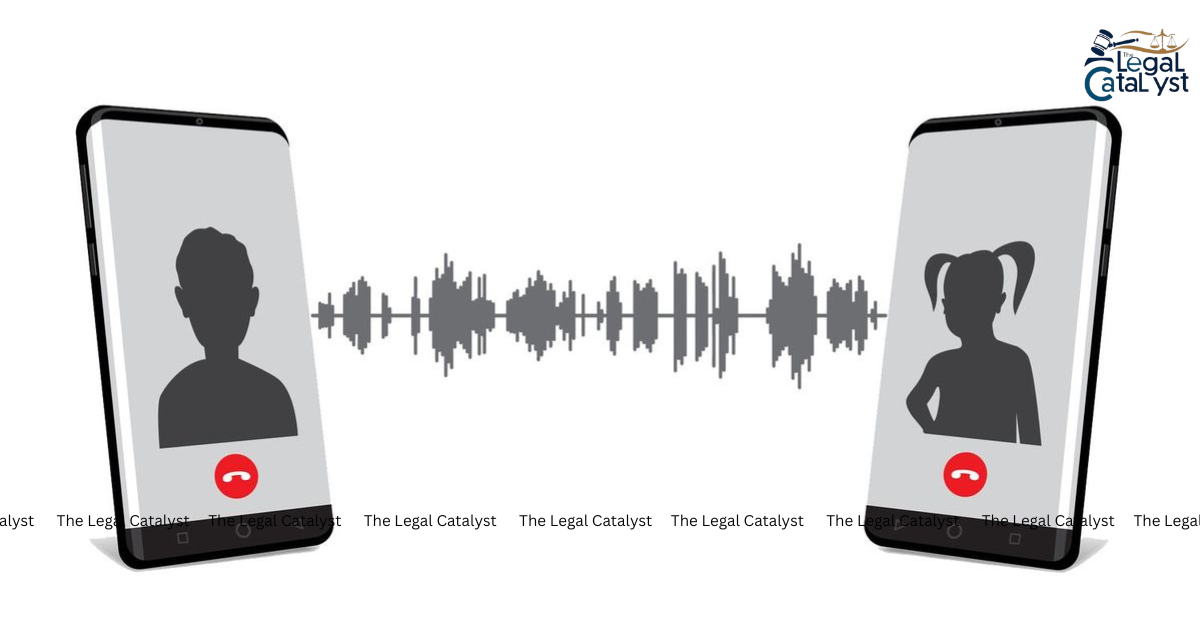In today’s digital age, recording phone calls or conversations is as easy as tapping a button. But is it legal to record a call in India?
Can you use it as evidence? Do you need the other person’s permission?
Let’s break down what Indian law says about call recording, consent, privacy, and when it can land you in trouble.
Is Call Recording Legal in India?
Yes, but with conditions.
There is no specific law in India that bans call recording by an individual. But legality depends on who is recording, why, and whether consent is given.
Consent: One-Party vs Two-Party
India generally follows a “single-party consent” rule, meaning:
If you are a part of the conversation, you can legally record it—even without informing the other person.
❌ If you record a conversation through spying or tapping someone’s phone, that action is illegal. This applies if you are not part of the conversation. It is a breach of privacy.
What Does the Law Say?
1. Indian Telegraph Act, 1885 – Section 5(2)
- Allows lawful interception only by government agencies, and that too in the interest of public safety or national security.
- Unauthorized phone tapping is a punishable offense.
2. Information Technology Act, 2000 – Section 66E
- Penalizes capturing, publishing, or transmitting private information without consent.
3. Right to Privacy (Puttaswamy Judgment, 2017)
- Recognizes privacy as a fundamental right under Article 21.
- Secretly recording private conversations may violate this right.
Is Call Recording Admissible in Court?
Yes, if:
- It’s relevant to the case
- It’s not tampered with
- The person recording it is a party to the conversation
Courts have admitted call recordings in:
- Dowry harassment cases
- Property disputes
- Workplace sexual harassment complaints
But it must be used ethically and lawfully.
Connect with us on Instagram – X – LinkedIn for daily updates, quizzes, and other materials.
When Is Call Recording Illegal?
You cannot legally:
- Tap someone else’s phone without official sanction
- Use hidden devices to record conversations you’re not a part of
- Record calls to blackmail, harass, or violate privacy
- Share private recordings without consent, especially on public platforms
Apps and Spyware: Be Careful
Many apps claim to record calls or messages remotely.
Using such tools without consent is a punishable offense under:
- Indian Penal Code (IPC)
- IT Act, 2000
- Privacy laws under Puttaswamy judgment
You may face jail time, fines, or both.
Real-Life Example
In a recent Delhi High Court case, a wife recorded her husband’s abusive calls without his knowledge.
The court admitted the recordings, stating she was a participant and did it to protect herself.
Key Takeaways
- ✅ You can record calls you’re part of
- ❌ You can’t record others’ conversations without consent
- ⚖️ Court may accept recordings as evidence if done lawfully
- 🚨 Phone tapping is legal only for government with due process
- 🧑⚖️ Always record ethically—don’t misuse it
Conclusion
Recording calls and conversations in India is a legal grey area—but with awareness, you can stay within your rights. If you’re a journalist, lawyer, employee, or just someone looking to stay safe, understanding call recording laws is crucial.
💡 Golden Rule: If you’re part of the call and doing it for protection or legal proof—not harassment—it’s usually okay.
But spying? That’s a big no.
Also Read
Kanwar QR Code Controversy: Supreme Court Challenge Sparks 5 Urgent Legal Questions
Legal Aspects of Starting a Business in India






